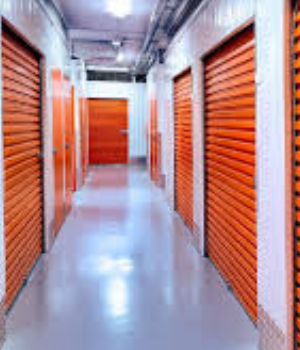Anthony Paine, co-founder & CEO of Stashbee, discusses how the increasingly limited access to physical space affects mental health.
Britain is the Most Densely Populated Large Country in Europe:
A steady population growth rate of 6.9% over the past decade has seen the number of people living in the UK reach close to 67 million, resulting in Britain being the most densely populated large country in Europe, with 281 people per square kilometer. This is compared to the European average of just 34. In conjunction with Mental Health Awareness Week in the UK, a new landmark national research from Stashbee – the UK’s largest marketplace for self-storage, garages, and parking – has been commissioned to understand what impact living in crowded conditions has on Britain’s mental health.
The research revealed that 29% of Brits living in cities suffer from mental health implications from living in cramped conditions, illustrating how space has very much become a scarce commodity. The study found that 14% of Brits found the lack of space in cities so overbearing they moved to the regions to be afforded greater space.
Stashbee’s national research has unveiled that the critical mass of British society is dramatically underserved when it comes to the space around them. The research has also highlighted an emerging socioeconomic disparity in terms of access to space as middle-class households (4,363,000) are nearly twice as likely to have access to excess space in their property compared to working class households (2,294,000).
Lack of Storage Space:
A further 21% of Brits stated they’re in desperate need of extra storage space but cannot afford it due to increasing costs in warehouse facilities, resulting in more crowded homes. This insight coincides with the UK self-storage industry experiencing the greatest occupancy levels on record, as 82% of units are occupied, causing rental rates to skyrocket. The industry has seen an increase of 86p per square foot compared to the 5-year average of 50p per square foot, with many renters seeing the cost of their units nearly quadruples during the pandemic.
The result of increasing demand for storage has meant that nearly 4.5 million Brits are in need to store personal belongings in more than two properties due to a lack of space in their current living arrangements – proving indicative of the increasingly limited access to space in the UK is experiencing. In contrast to those who suffer from an absence of space, Stashbee has found that nearly 36% of the nation has excess space in their property that has the potential to be rented out. Stashbee addresses these issues by connecting the users that lack space, with those that have some extra space and are looking for a passive income.
Reduced Physical Space Impacting Mental Health:
Anthony Paine, co-founder and CEO of Stashbee comments on the impact that physical space has on mental health:
“We often think of physical space and mental space as completely different concepts. In our view, the two things are incredibly connected. Having enough physical space to not feel cramped in your home, and also keep hold of your your most treasured possessions, leads to a clearer, healthier mind.
“The same goes for having enough space to run a business effectively, whether it’s a one-person-operation, or a large company. Being ‘space poor’ can be incredibly stressful, and in our view, should not be something people have to suffer from.”





